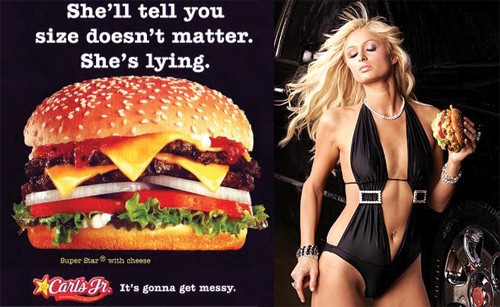Jack Demmler
jd050918@ohio.edu
In a fast-paced world, the attention span of the average human is very short. Advertisers have a small window to work with in order to get the viewers attention and inform the viewer about the product without losing the interest of the viewer.
In order to do this, agencies often use unethical methods in order to achieve this goal. In order to make an accurate claim as to what is ethical or unethical advertising, we must define what makes an advertisement ethical or unethical. Under the FTC law regarding truth in advertising, "Claims in advertisements must be truthful, cannot be deceptive or unfair and must be evidence based." According to the article What is the Difference Between Unethical and Ethical Advertising, Nick LaMarco states that "Ethical advertising is all about knowing the truth of your product/service without having to lie."
One of the most notable forms of unethical advertising is the use of sex appeal. It is widely known that sex does sell. It seems more and more companies tend to use some form of sexual appeal when advertising their product.The reason companies use sex in advertising is because it captures the attention of the audience quickly.
For example, Hardys and Carl's Jr showed an advertisement for their mile high bacon thick-burger by showing a female on a plane asking a man sitting next to her if he wanted to join the mile high club and then they proceed to eat the burger.
Another example came during Super Bowl XLIX in 2015 when Carl's Jr was advertising their "All Natural Burger." In this advertisement, Charlotte McKinney is shown win a food market with the her private parts being covered. She states "I love going all natural...Nothing between me and my all natural, juicy, 100% grass-fed beef."
In the examples listed, the advertisements present an ethical gray area because neither ad lies about the product. However, it can distract the audience from the actual purpose of the advertisement.
However, with the constant use of sex in advertising, it is important to ask whether it is ethical to use sex in order to sell a product. A main reason sex appeal is considered unethical in advertising is because it distracts the viewer from the product itself. The use of sex in a commercial can cause the viewer to link the product to sex even if the two are totally separate. While the advertisement does not necessarily lie about the product nor do they indicate that the product and sex are in any way connected, the use of sex in advertising can ultimately deceive the viewer into buying the product. Being deceptive is against the FTC law in regards to truth in advertising.


No comments:
Post a Comment